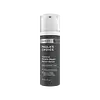What's inside
What's inside
 Key Ingredients
Key Ingredients

 Benefits
Benefits

 Concerns
Concerns

 Ingredients Side-by-side
Ingredients Side-by-side

Cyclopentasiloxane
EmollientDimethiconol
EmollientNeopentyl Glycol Diheptanoate
EmollientDicaprylyl Carbonate
EmollientCaprylic/Capric Triglyceride
MaskingPhenyl Trimethicone
Skin ConditioningSqualane
EmollientBisabolol
MaskingTetrahexyldecyl Ascorbate
AntioxidantRetinol
Skin ConditioningTocotrienols
Skin ConditioningTocopherol
AntioxidantLecithin
EmollientLaminaria Ochroleuca Extract
Skin ConditioningAvena Sativa Kernel Extract
AbrasiveElaeis Guineensis Oil
EmollientStearyl Glycyrrhetinate
Skin ConditioningHexylene Glycol
EmulsifyingCaprylyl Glycol
EmollientEthylhexylglycerin
Skin ConditioningPhenoxyethanol
PreservativeCyclopentasiloxane, Dimethiconol, Neopentyl Glycol Diheptanoate, Dicaprylyl Carbonate, Caprylic/Capric Triglyceride, Phenyl Trimethicone, Squalane, Bisabolol, Tetrahexyldecyl Ascorbate, Retinol, Tocotrienols, Tocopherol, Lecithin, Laminaria Ochroleuca Extract, Avena Sativa Kernel Extract, Elaeis Guineensis Oil, Stearyl Glycyrrhetinate, Hexylene Glycol, Caprylyl Glycol, Ethylhexylglycerin, Phenoxyethanol
Water
Skin ConditioningNiacinamide
SmoothingPropanediol
SolventGlycerin
HumectantAscorbic Acid
AntioxidantGlutathione
Aloe Barbadensis Leaf Juice
Skin ConditioningRetinol
Skin ConditioningSodium Hyaluronate
HumectantCaprylyl Glycol
EmollientHydroxyethylcellulose
Emulsion StabilisingCarbomer
Emulsion StabilisingSalicylic Acid
MaskingTocopheryl Acetate
AntioxidantHumulus Lupulus Extract
AntimicrobialGlyceryl Polyacrylate
Potassium Sorbate
PreservativeCopernicia Cerifera Wax
Hexylene Glycol
EmulsifyingSorbitol
HumectantSodium Hydroxide
BufferingSorbitan Oleate
EmulsifyingAcrylamide/Sodium Acryloyldimethyltaurate Copolymer
Emulsion StabilisingHelianthus Annuus Seed Oil
EmollientPhenoxyethanol
PreservativeIsohexadecane
EmollientPolysorbate 80
EmulsifyingPolysorbate 20
Emulsifying1,2-Hexanediol
Skin ConditioningAmylopectin
Dextrin
AbsorbentPolydextrose
HumectantDisodium Cocoamphodiacetate
CleansingXanthan Gum
EmulsifyingTocopherol
AntioxidantCitric Acid
BufferingSodium Benzoate
MaskingDisodium Phosphate
BufferingGold
Cosmetic ColorantPolysorbate 60
EmulsifyingEthyl Ferulate
AntioxidantSodium Phosphate
BufferingWater, Niacinamide, Propanediol, Glycerin, Ascorbic Acid, Glutathione, Aloe Barbadensis Leaf Juice, Retinol, Sodium Hyaluronate, Caprylyl Glycol, Hydroxyethylcellulose, Carbomer, Salicylic Acid, Tocopheryl Acetate, Humulus Lupulus Extract, Glyceryl Polyacrylate, Potassium Sorbate, Copernicia Cerifera Wax, Hexylene Glycol, Sorbitol, Sodium Hydroxide, Sorbitan Oleate, Acrylamide/Sodium Acryloyldimethyltaurate Copolymer, Helianthus Annuus Seed Oil, Phenoxyethanol, Isohexadecane, Polysorbate 80, Polysorbate 20, 1,2-Hexanediol, Amylopectin, Dextrin, Polydextrose, Disodium Cocoamphodiacetate, Xanthan Gum, Tocopherol, Citric Acid, Sodium Benzoate, Disodium Phosphate, Gold, Polysorbate 60, Ethyl Ferulate, Sodium Phosphate
 Reviews
Reviews

Ingredients Explained
These ingredients are found in both products.
Ingredients higher up in an ingredient list are typically present in a larger amount.
Caprylyl Glycol is a humectant and emollient, meaning it attracts and preserves moisture.
It is a common ingredient in many products, especially those designed to hydrate skin. The primary benefits are retaining moisture, skin softening, and promoting a healthy skin barrier.
Though Caprylyl Glycol is an alcohol derived from fatty acids, it is not the kind that can dry out skin.
This ingredient is also used as a preservative to extend the life of products. It has slight antimicrobial properties.
Learn more about Caprylyl GlycolHexylene Glycol is a surfactant. Glycols are a class of alcohols. Hexylene Glycol is a surfactant and emulsifier.
As a surfactant, Hexylene Glycol helps gather dirt and oil on your skin to be washed away.
As an emulsifier, Hexylene Glycol helps keep water and oil together. This prevents them from separating in a product. Hexylene Glycol also thins out the texture of a product by lessening viscosity.
Hexylene Glycol has a small molecular weight.
Learn more about Hexylene GlycolPhenoxyethanol is a preservative that has germicide, antimicrobial, and aromatic properties. Studies show that phenoxyethanol can prevent microbial growth. By itself, it has a scent that is similar to that of a rose.
It's often used in formulations along with Caprylyl Glycol to preserve the shelf life of products.
Retinol is a gold-standard ingredient for anti-aging. It is a form of Vitamin A and belongs to the class of retinoids that also includes tretinoin.
Why is retinol famous?
It has the most scientific studies backing up its skin benefits out of all the non-prescription ingredients.
Retinol is proven to:
This is why retinol is effective at removing wrinkles, fading dark spots, treating acne, and reducing the appearance of pores.
Studies show retinol is less effective when exposed to UV. Be sure to look for appropriate packaging to keep your retinol potent (similar to Vitamin C).
Using retinol or any retinoids will increase sun-sensitivity in the first few months. Though studies show retinoids increase your skin's natural SPF with continuous use, it is best to always wear sunscreen and sun-protection.
We recommend speaking with a medical professional about using this ingredient during pregnancy.
Retinol may cause irritation in some people, so be sure to patch test. Experts recommend 'ramping up' retinol use: start using this ingredient once a week and work up to using it daily.
Read about Tretinoin
Learn more about RetinolTocopherol (also known as Vitamin E) is a common antioxidant used to help protect the skin from free-radicals and strengthen the skin barrier. It's also fat soluble - this means our skin is great at absorbing it.
Vitamin E also helps keep your natural skin lipids healthy. Your lipid skin barrier naturally consists of lipids, ceramides, and fatty acids. Vitamin E offers extra protection for your skin’s lipid barrier, keeping your skin healthy and nourished.
Another benefit is a bit of UV protection. Vitamin E helps reduce the damage caused by UVB rays. (It should not replace your sunscreen). Combining it with Vitamin C can decrease sunburned cells and hyperpigmentation after UV exposure.
You might have noticed Vitamin E + C often paired together. This is because it is great at stabilizing Vitamin C. Using the two together helps increase the effectiveness of both ingredients.
There are often claims that Vitamin E can reduce/prevent scarring, but these claims haven't been confirmed by scientific research.
Learn more about Tocopherol